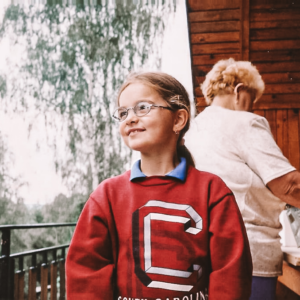5 Key Things Autism Siblings Wish Parents Did Differently

5 Key Things Autism Siblings Wish Parents Did Differently.
Note: Autism siblings in this article refer to: – neurotypical siblings, autistic siblings, neurodivergent siblings AND those that are undiagnosed but “treated” as neurotypical
In 2016 I hit my rock bottom. Even though I lived in my dream city, London, I was completely burned out. My own mother didn’t recognize me, I was battling with sudden panic attacks, anxiety and depression. Little I knew it was a blessing in disguise.
This was a pivotal moment for me to start diving deep into the big question: WHY?
Why did I struggle with setting boundaries?

Why was I chronically pleasing everyone from my family, to friends to work colleagues and boss to the extent of complete exhaustion? I started diving deeper into my own brain back to childhood where I discovered stories that shaped who I was. Those experiences that influenced my behavior, self-worth issues, insecurities, mindsets and emotional struggles.
I felt lonely, like no one understands the motives of my extreme hard-working nature. The go-getter that gives 150% into everything she does.
The one that does 10 things at once because she feels like otherwise she is missing out big time and her few years of freedom are coming to the end. I was 22 so how could I possibly run to the end of my freedom? No one understood.
Until I found a private group of siblings of autistic children and adults. I finally saw I am not crazy for feeling guilty for things my peers didn’t even worry about, like living my own life or making my dreams come true, or studying abroad, or working abroad.
My peers didn’t understand what it’s like to have the constant worry in the back of my mind about the one little precious person that is so special to me. My autistic non-verbal brother, Samko.

After reading tons of posts that crushed my heart into millions of pieces as they felt so real, so heartbreaking. Where the narratives of “I resent my sibling because my parents neglected me and favored him/her.” Or the one I feared that will happen to my younger brother Samko “My autistic brother is 40 and is depressed, lonely, no job, no nothing, he is lazy and has no motivation in life” were crushing my soul one by one.
I said to myself: “I HAVE to do SOMETHING! This shouldn’t be like this! There IS a way OUT for both parties and the whole family to be HAPPY and have wonderful, healthy and loving relationships!”
So I did research.
I asked these siblings one simple question:
“What do you wish your parents did differently?” And from their answers I created solutions that worked not only for me but for thousands of people around the world since they came from the best family and relationships experts in the world.
I created a guide turned into an online course and book for moms and siblings to heal and create a foundation for healthy and happy sibling relationships where siblings are seen and heard, their needs are met and the autistic children feel confident in their abilities and rise in their independence which makes them feel more valued and equal to their siblings.

Here are the 5 key proven actionable steps, backed with evidence, academic research and 20 years of my sibling experience:
1. Practice what I call “ABILITY Mindset.”
Work on supporting your autistic child’s abilities while supporting their special needs. Ditch perfectionism or the inner “control freak”. It’s easier said than done but it’s no.1 step so your autistic child can rise in confidence in their abilities and their siblings will feel they don’t have to carry ALL of the responsibilities and tasks. Remember, one step at a time.
- Journal prompt: What do I believe my child is unable to do and what are little things he/she does that prove me wrong? – look for evidence (list of small or big successes) contrary to your mindset
2. Teach your children about the “emotional spectrum” or what I call “emotions are like rainbows.”
Which means – all emotions are beautiful and accepted as they are. There are no bad emotions. – this is especially important because many siblings hide their feelings from their parents since they don’t want to cause more trouble or trigger their autistic siblings and cause meltdowns.

3. Teach your children about NEEDS and how to communicate those needs.
To you and in their other relationships NOW. Many siblings experience emotional neglect trauma since their needs are not seen as that important or primary focus and they then internalize this mindset which can lead to many psychological and physical health problems in their childhood and also adulthood.
4. Therapy is OK. Therapy is NEEDED,
Many siblings wish their parents got mental health counseling for the whole family and asked for help. You’re not supposed to do this alone. Special needs parenting is extremely hard, you need a village, support and community. Do it for you and for your family.
5. Practice equality and fairness,
even when it’s hard. One of the best things my mom did was she treated us equally. No apologizing for inappropriate behavior (called by sibs “giving autism pass”) or crossing boundaries for my brother just because he is autistic. Now, at the age of 20 my brother treats everyone with respect and is able to communicate his boundaries and understand those of others.

I know you want the best for your family. I know you feel guilty when you don’t meet the needs of all of your children.
These takeaways are easily said than done so if you need loving support and guidance throughout the process of taking those actionable steps. Making these important changes that will create the solid foundation for your children’s healthy and happy sibling relationship I invite you to come and join our community – our global autism family either via our instagram: @happyautism or through our course where we do this together.
You’re not alone in this! I believe in you!
Sending love from our Happy Autism family,
Mishka Sibert

